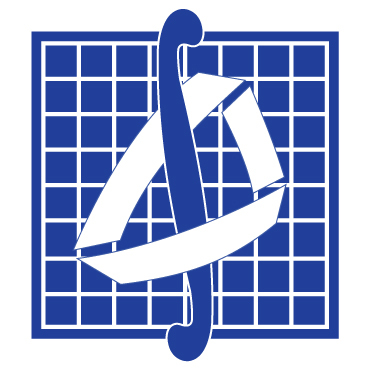Mathematical
fundamentals of the
navigation systems
fundamentals of the
navigation systems
This program is aimed on fundamental training of specialists with significant experience in independent scientific work, and in practice of conducting real experiments and computer simulations in field of theory, analysis and application of modern models and methods of inertial, satellite and aided navigation systems.
Special courses, devoted to teaching effective methods for studying navigation, control and estimation problems, for applying these methods to problems of inertial, satellite (GNSS) and personal navigation, airborne gravimetry, biomechanics, robotics, form the core of the master’s program.
The program culminates in a Master’s thesis preparation and an oral presentation of the work at a public colloquium.
Special courses, devoted to teaching effective methods for studying navigation, control and estimation problems, for applying these methods to problems of inertial, satellite (GNSS) and personal navigation, airborne gravimetry, biomechanics, robotics, form the core of the master’s program.
The program culminates in a Master’s thesis preparation and an oral presentation of the work at a public colloquium.
588 460 Russian Roubles
Tuition fee per year.
The program takes 2 years.
The program takes 2 years.
10 places
for application with the tuition fees
Full-time program in English
Main courses
of the program
of the program
First year
— Selected topics of analysis, linear algebra and differential equations.
— Theoretical mechanics.
— Simulation of dynamic and stochastic systems.
— Linear analysis and synthesis of control systems.
— Satellite navigation (GNSS).
— Inertial navigation.
— Estimation theory.
— Special physical and mechanical workshop.
— Theoretical mechanics.
— Simulation of dynamic and stochastic systems.
— Linear analysis and synthesis of control systems.
— Satellite navigation (GNSS).
— Inertial navigation.
— Estimation theory.
— Special physical and mechanical workshop.
Second year
— Aided inertial navigation systems.
— Alternative methods of estimation.
— Physical geodesy and gravimetry.
— Optimal control.
— Applied navigation problems.
— Design and technological practice.
— Alternative methods of estimation.
— Physical geodesy and gravimetry.
— Optimal control.
— Applied navigation problems.
— Design and technological practice.
Head of the program
Andrew A. Golovan
Head of the Laboratory of Control and Navigation, Faculty of Mechanics and Mathematics, Lomonosov Moscow State University.
Doctor of science in mathematics and physics.
Laureate of the Nikolay N. Ostryakov Prize (2018),
Laureate of the Boris N. Petrov Prize of the Russian Academy of Sciences (2019).
Fields of research:
— inertial navigation systems (INS),
— global navigation satellite systems (GNSS),
— aided INS-GNSS systems,
— calibration problem in inertial navigation,
— INS alignment problem,
— airborne gravimetry.
Doctor of science in mathematics and physics.
Laureate of the Nikolay N. Ostryakov Prize (2018),
Laureate of the Boris N. Petrov Prize of the Russian Academy of Sciences (2019).
Fields of research:
— inertial navigation systems (INS),
— global navigation satellite systems (GNSS),
— aided INS-GNSS systems,
— calibration problem in inertial navigation,
— INS alignment problem,
— airborne gravimetry.
Lecturers
- Head of the Laboratory of Navigation and Control,
Doctor of Science in physics and mathematics - Professor of the Department of applied mechanics and control,
Doctor of Science in physics and mathematics - Leading researcher of the Laboratory of Navigation and Control,
Doctor of Science in physics and mathematics
- Leading researcher of the Laboratory of Navigation and Control,
Candidate of science in mathematics and physics - Leading researcher of the Laboratory of Navigation and Control,
Candidate of science in mathematics and physics - Leading researcher of the Laboratory of Navigation and Control,
Candidate of science in mathematics and physics
Career opportunities
The graduates will obtain relevant experience for following areas:
- Aerospace industry,
- Space agencies,
- Shipbuilding,
- Automotive industryespecially - development of self-driving cars,
- Geophysics in domain of airborne gravimetry.
Admission process
Main admission track:
application
application
The application will be available from June 15 till July 20.
To be considered to the program, candidate must hold or expect a Bachelor of Science (B.S.) in Mathematics, Physics, or a scientific field requiring a strong background in mathematics (for example, Civil Engineering).
To be considered to the program, candidate must hold or expect a Bachelor of Science (B.S.) in Mathematics, Physics, or a scientific field requiring a strong background in mathematics (for example, Civil Engineering).
Main admission track:
exam
exam
The entry exam will be held in July, the date will be announced later.
Enrollment
Top-10 applicants, who provided all the necessary documents and paid the tuition fee for the first term, will be enrolled to the program.
Related events
Required documents
- A scan of an ID document containing name and photo.
- 1 passport size photo.
- CV / resume.
- A scan of a diploma or an academic transcript.
- A short personal statement (1 page).
- A scan of an official English language test report or certificate.
- An abstract of an undergraduate thesis or any project.This should provide a brief description of project (up to 3 pages), stating its objectives, research materials and methods as well as results.
- Up to 2 references.Note that references must be submitted by
the referees themselves via e-mail to master@math.msu.ru
Contact us
